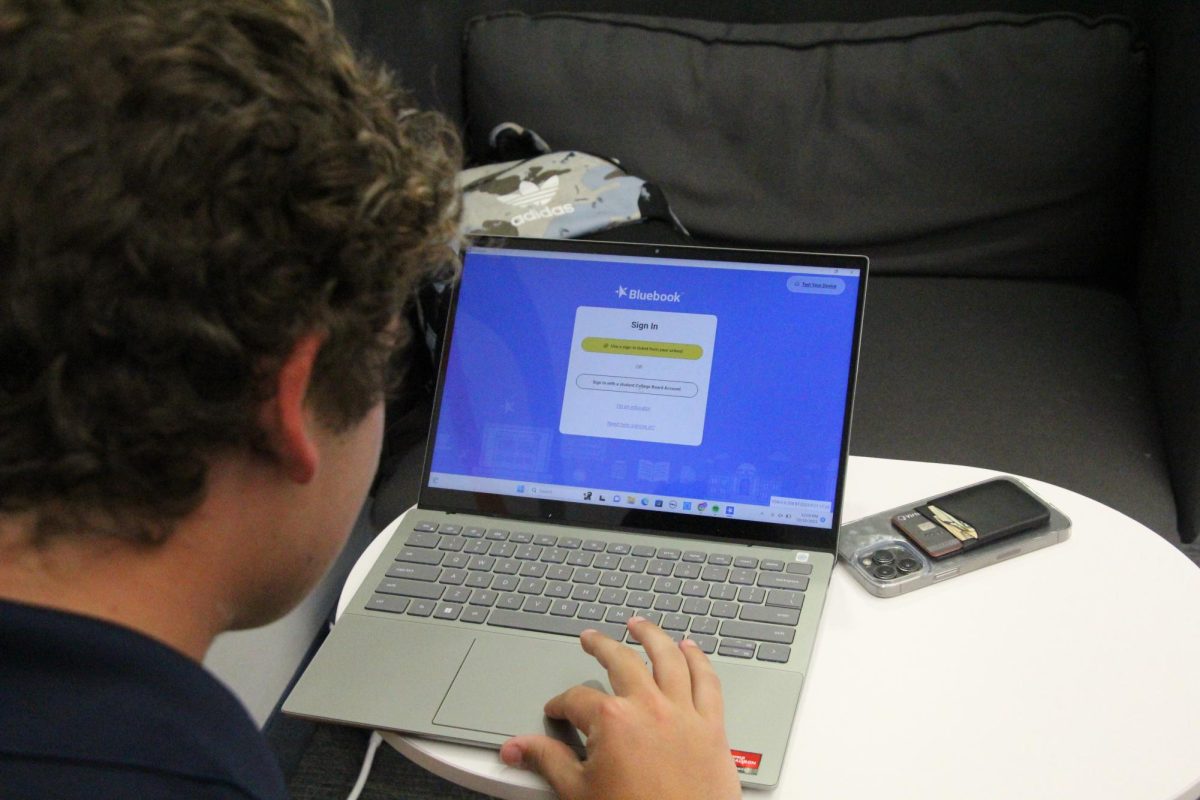On Oct. 11th, freshmen, sophomores, and juniors will take the PSAT in their selected advisories. This year, instead of taking the test on paper, the students will take it on their computers.
Director of the Learning Commons, Mrs. Kristen Hewitt, thinks that the online test will positively influence the students’ test scores more than the paper test.
“I honestly think that students will find the digital administration easier. It is probably more for them, and the students will focus on every question one by one. I feel like there is less clutter and distraction. The kids will find it better and easier, and better scores will come from it,” Hewitt states.
Although Hewitt believes it benefits students, sophomore James Carpenter remains unconvinced, believing that the PSAT’s online transition is not a sign of progress.
“I do not like the idea of the online PSAT because I find it easier to focus when using a pencil and paper. I think it will be harder because it will take more effort to focus, and because the test is long, I think it will wear me out faster, and my answers will become more sloppy as the test goes on,” Carpenter explains. “However, I think it could be easier for some students, considering writing with a pencil for an extended period of time is also tiring, and some people focus better on computers, so I think it all comes down to how you are as a student and what you prefer.”
Along with Carpenter, junior Scott Noble shared what he finds may be more challenging.
“The difficulty of the test varies. The math will stay the same, but the reading section will get harder. It may also hinder my focus by looking at a screen for a while instead of a paper,” Noble explains.
The test will be taken on an app students download on their computers called “Bluebook.” Since students are transitioning from paper to digital, PSAT coordinator Mrs. Melissa Rizzitano believes that students and faculty will eventually have to switch to digital formats for other exams as well.
“The PSAT being digital is great for students and faculty to learn how to use the digital platform since it is all new. It is huge to learn now because we will not only be taking the actual SATs online but every standardized test online in the near future.”
What would happen if chaos occurs? Mrs. Hewitt answers it with a backup plan and the reasoning for specific objects that the students will use.
“If the internet crashes, your test will resume once the internet restores, but the student will get logged out. We cannot test in the gym because the internet will not hold a group of kids, which is why students will take the test in their advisories,” Hewitt exclaimed. “Students during the test are allowed one pencil, one ticket for their login through the “Bluebook” app, and three pieces of scratch paper.”
Dean of Academics Mrs. Caroline Guzman feels strongly about the digital PSAT, and the pros of it will only help the students in great ways.
“In the spring of 2024, all SATs will be digital, so this is a great way for schools to assess their readiness for those exams where the stakes are much higher. I think the College Board is trying to move all of their standardized exams, including AP, to digital formats so I do not foresee us, or schools walking back from digital testing. That being said, students are already exposed to the digital tools they need to be successful on these types of exams, such as typed essays in English class, programs like IXL in math and Reading, Language Arts, and so I think the digital PSAT is another great tool for students to practice skills as well as review content, that will help them be successful on exams like the SAT, ACT, and AP Exams,” Guzman states.
Agreeing with Mrs. Guzman, Director of College Counseling Mrs. Anna Wright believes that students’ scores will be similar to those earned in past years..
“Every time the test changes, there is a period of time when we have to wait and see how it settles out. Colleges, counselors, and students will be carefully watching how the scores compare. The College Board promises that the scores will be similar and I suspect that they will be close. While we are new to the digital SAT here in Florida, they have been offering digital SAT and ACT tests overseas for quite a while. Those students’ scores are read the same way as our paper tests. And there have been digital tests, like the GRE, for decades. Unlike some of the other changes, I’m hopeful that this one will feel less drastic after the first few months,” Wright exclaims.
Mrs. Wright explains that the transition to digital could be rough for some, but it will benefit them during the long run.
“The change will feel strange and hard at first for the students. However, thousands of students have made the digital change already. Many have appreciated the new format. It takes less time and students get their scores faster. While it may feel like a bumpy transition now, I think our students have the skills to adapt quickly. And keep in mind that we are offering this as a practice test, so students can try it before they take a test that counts. If they don’t like it, they have the option of taking the ACT on paper for a little longer,” Wright says.
PSATs will be administered on October 11th.









